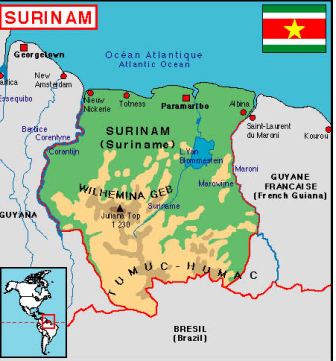Suriname Asian Marriage Decree
The Muslim Marriage Act of 1940 was part of the Asian Marriage Act of 1940 and was a result of strong lobbying by the Asian community to be recognised as part of the social and political fabric of Suriname.
Above all, it was a rejection of “Dutchification” and acceptance of “Asianisation” by the Dutch themselves, since Muslims have been living in Suriname since 1873 and up to 1940 their religious marriages were not registered with the government, “which caused many problems regarding law of succession and registration of children.”
It was in this context that the Dutch were sympathetic towards the Asians that they tried to resolve these problems by enacting the Asian Marriage Decree during the Governorship of Professor Kielstra who came from Indonesia; however, he was a Dutchman from the Netherlands.
This bold step taken by the Dutch Governor of incorporating special privileges to the Muslim and Hindu community and treating them as equals was a goodwill gesture to the Asians that demonstrated that the Dutch were not interested in “civilising” the Asians, unlike the British policies in Guyana. The decree consisted of two parts — the Muslim Marriage Act and the Hindu Marriage Act which legalised marriages performed by Hindu and Muslim religious leaders.
The Muslim Marriage Degree concerned marriages among Muslims only and has drawn much coverage since the 1990s. Some attacked this dual law and see it as a violation of Suriname’s constitution and very unfair to women. Non-Muslims were always required to register their marriages with the civil authorities.
Dawn, a Muslim newsletter of Suriname, summarises the sentiments of the Muslim community: “The Muslim Marriage Decree should apply only to Muslims to prevent misuse by non Muslims for example bypassing the marriageable age or parental consent.”
There are sharp differences on the issue of divorce of Hindus and Christians as compared to Muslims, and this has been the bone of contention. Suriname’s Civil Code entitles every man and woman to a divorce. Marriages of Hindus and Christians cannot be dissolved because they are not regulated by their “religious books,” thus, a Hindu or a Christian must apply for a divorce based on Suriname’s Civil Code.
On the contrary, the Islamic marriages are regulated by the Quran (Sharia) and “the legislator could insert a separate regulation regarding divorce into the Muslim Marriage Decree.” Suriname’s Civil Code contains four grounds for divorce which is in stark contrast to Quranic Laws (Sharia) since there are no specific grounds for divorce (talak).
In Suriname a Muslim man according to the Muslim Marriage Decree can easily get a divorce; however the wife has only two options to divorce:
1. She can apply for a divorce based on Article 4 of the Muslim Marriage Decree;
2. She can apply for a divorce via a magistrate.
With regards to the second case, the magistrate is held to the grounds for divorce, as stated in the Civil Code, but he hears an expert of Islamic Fiqh (Islamic Law/Sharia) who verifies whether or not the couple can live peacefully, and determines if a divorce is necessary and that all the steps in the process of a Muslim Talak have been followed according to Sharia.
In the past decade the Muslim Marriage Decree has come under attack from international human rights groups, women groups in Suriname calling for the integration or standardisation of the country’s Civil Code which they alleged is in violation of the country’s constitution.
Islamic organisations such as the SIV, MMA, and SMA presented a united case to the President of Suriname. They supported the modification of the Muslim Marriage Decree in 1973 which became know as the Adhin Law (Marriage Law Revision Act 1973) which was ratified finally by the Surinamese Parliament in 2003.
The Muslim intelligentsia who were part of several commissions since 1973 revising the Asian Marriage Act did not see it as an infringement of their religious rights. In fact, they see it as an improvement of their country because the dual laws created cracks for abuse which were abused by non-Muslims as well. Revision included the age of marriage for both male and female to age 17 for male and 15 for female, grounds for divorces, inheritance, guardianship or parental authority after divorce, maintenance or allowance.
This in essence came into uniformity with the Civil Code of Suriname. Religious marriages of Muslims will now have to be registered with the civil authorities and divorce by a secular court.
More or less, the Muslim Marriage Act of 1940 has been abrogated.
This was in response to Mr. Ahmad Jhawnie’s letter titled “Fake marriages” in the Guyana Chronicle of June 8, 2006.





Be the first to comment on "Suriname Asian Marriage Decree"